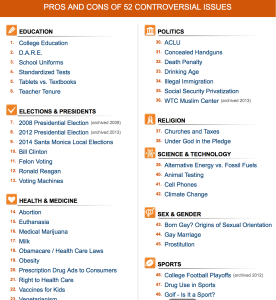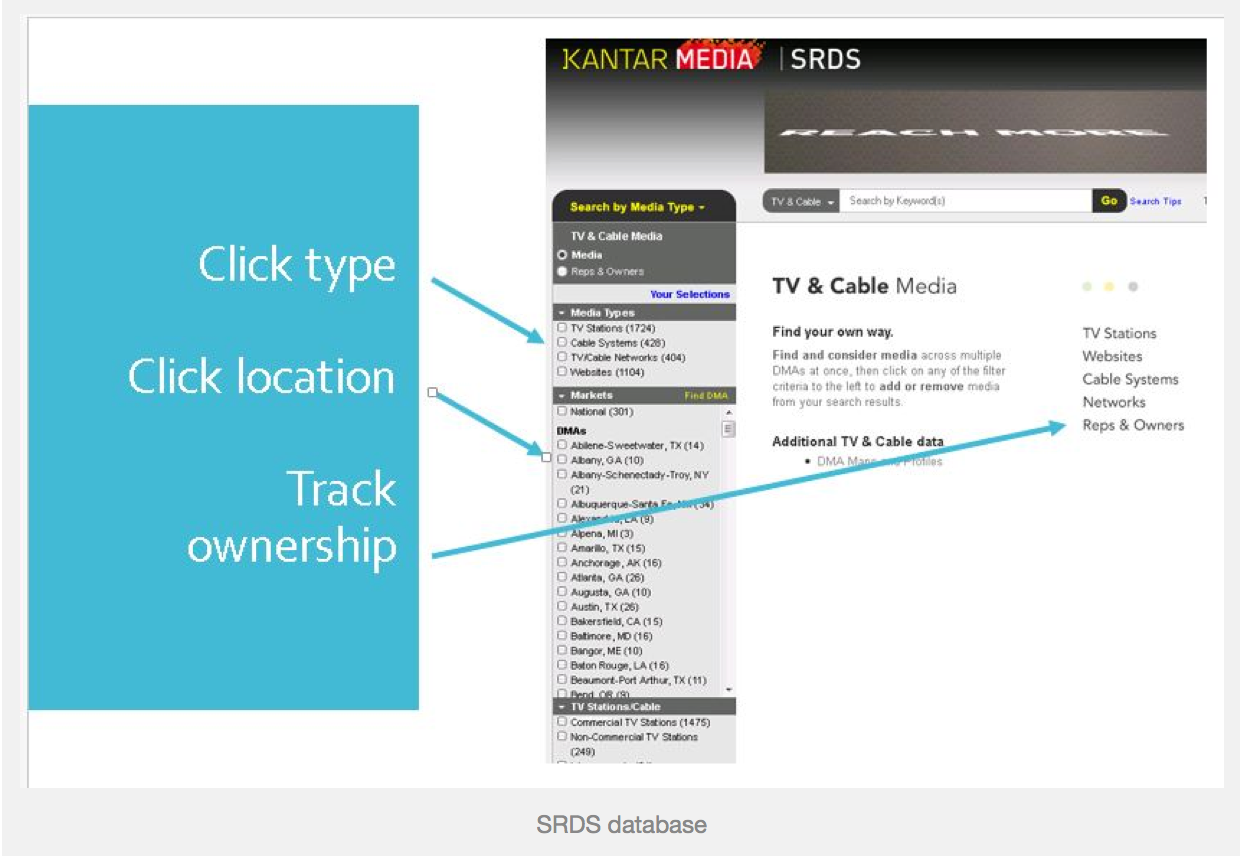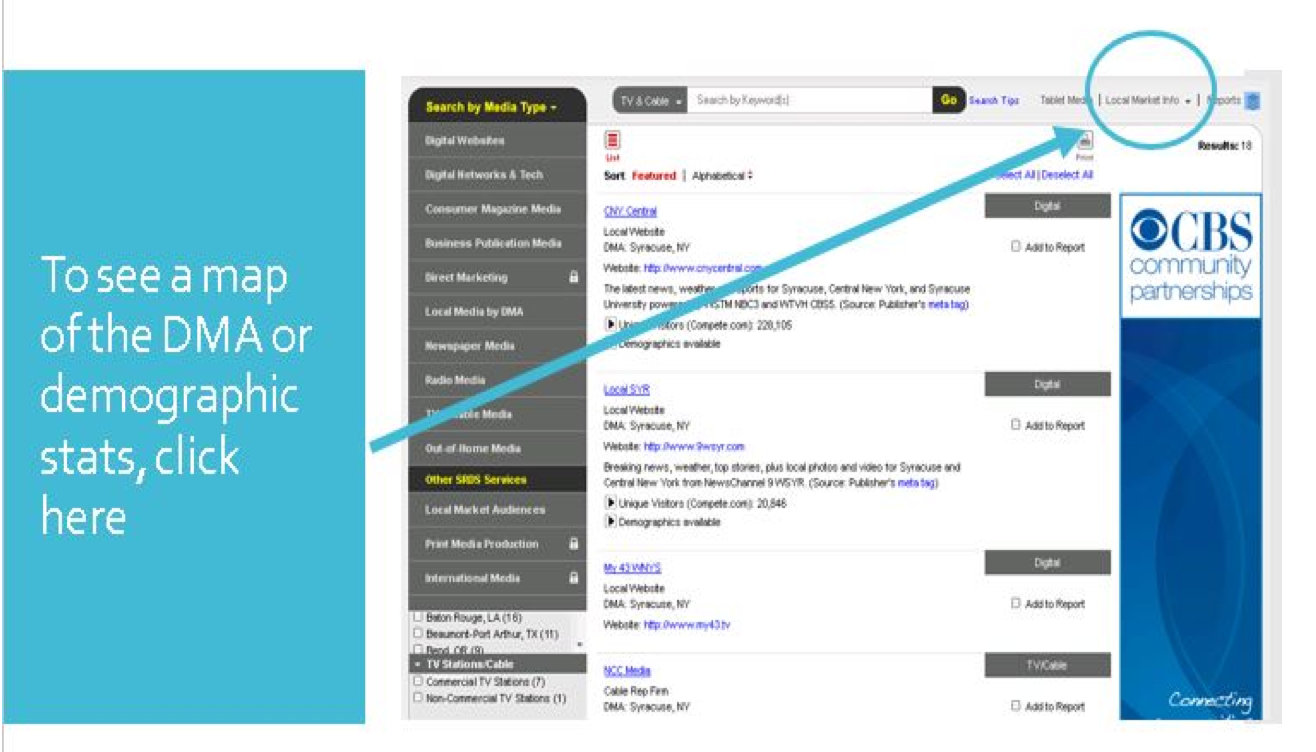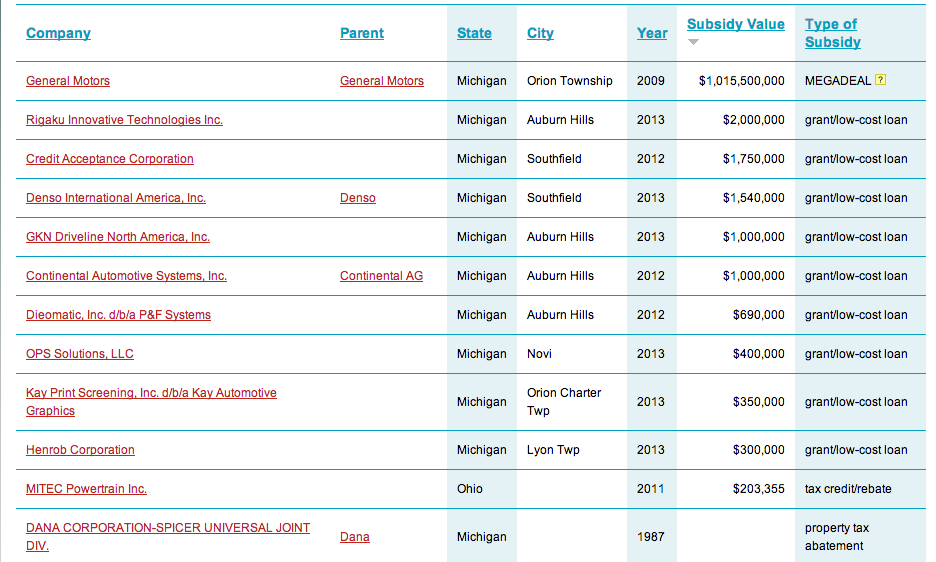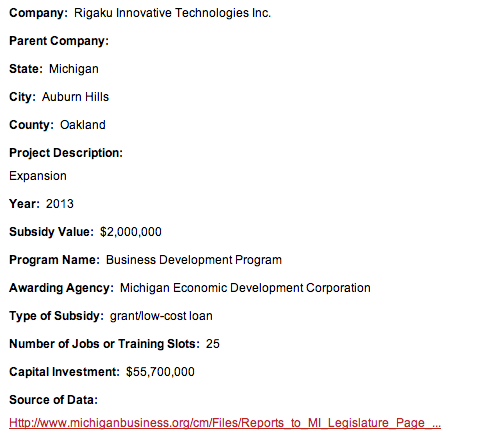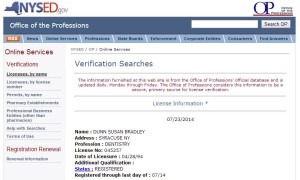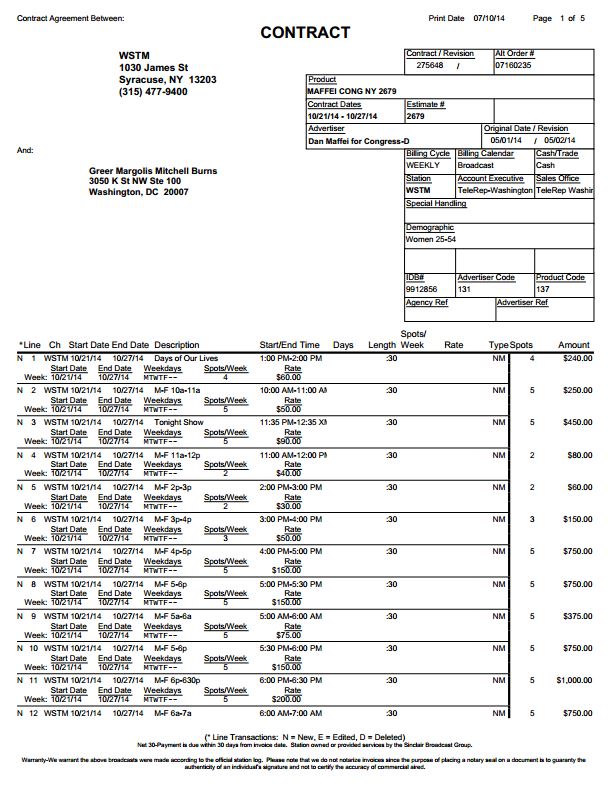I have to credit National Public Radio for tipping me off to a website that I didn’t know about and should have. It’s been around 10 years. So I want to make share it with you.
ProCon.org includes various sides of controversial issues. It says it provides “free, unbiased, and sourced information so people can better understand important social issues and make more informed decisions about them.”
Dozens of well-recognize media have used it.
I’m also impressed with its transparency about who it is and its financial statements. It includes various sides of controversial issues.
Sounds like this would be helpful for journalists in several ways:
- to make sure we understand all aspects of a topic before reporting on it
- to prep for interviews with persons who advocate one side or the other
- to check any hidden biases or influences we might have
The site boasts facts on more than 50 issues. See the graphic above with a list of some of them.
